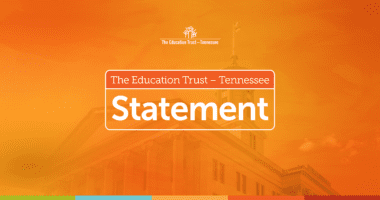Data for Equity Webinar Series
Shedding light on inequities — in school funding; access to high-quality educators from diverse backgrounds; advanced coursework; or safe and culturally affirming school environments — all starts with access to data.
To help advocates call attention to inequities and spur action to address them, The Education Trust hosted a series of webinars to discuss how data and transparency are the key to the fight for educational equity — and provided attendees with updated data sources to aid in this work.
Equal is Not Good Enough in School Funding
High-need districts and schools continue to receive less school funding than they need to meet the needs of their students. In this session, we shared the most up-to-date data on funding gaps between districts in states, as well as policy options to address those funding gaps. We also demoed a new interactive data tool that allows users to explore the inequities in school funding between districts, differences in funding between schools in districts, and — for the first time ever — school-by-school spending data.
Advocating for Actionable Data on Equitable Access to High-Quality Teachers
Here, participants explored recent National Council on Teacher Quality (NCTQ) data on inequitable patterns of teacher distribution and their implications for students. We used this data to understand how teachers are distributed and identify weaknesses in states’ current data practices that limit what advocates can learn about equitable access to great teachers. Participants identified opportunities to advocate for improved access to actionable data on the equitable distribution of teachers.
Leveraging Data to Fuel COVID Recovery Advocacy Efforts
Participants heard from a panel of advocates from around the country on how they’ve leveraged data for their advocacy efforts and lessons learned from their work in their communities. Panelists discussed how they advocate for increased transparency in student achievement, ESSER spending, and other district and statewide data, as well as strategies they have used to work alongside district and/or state leaders to access data.









